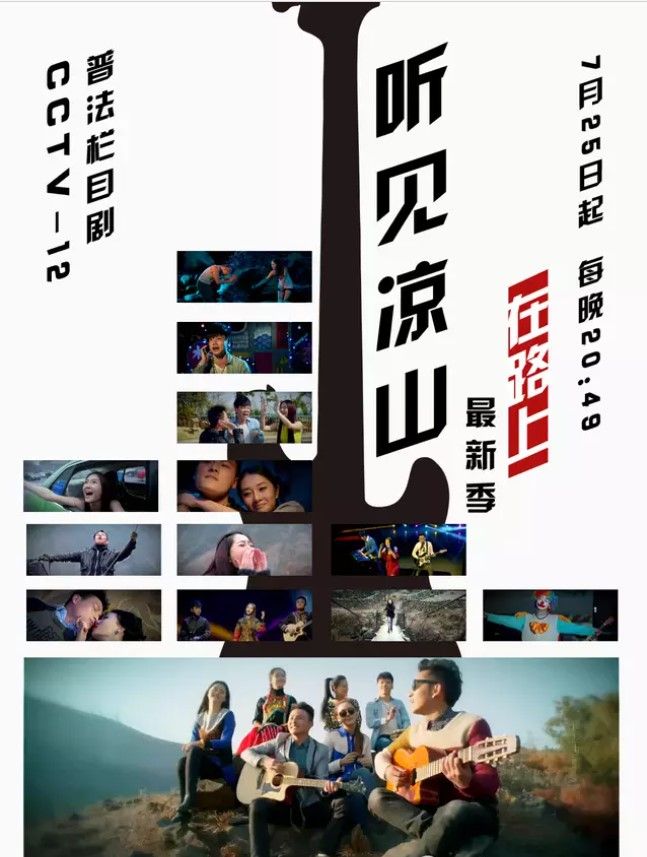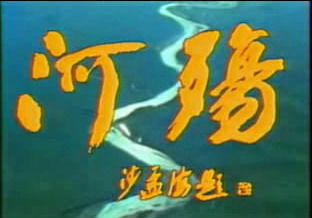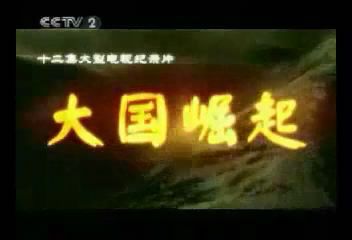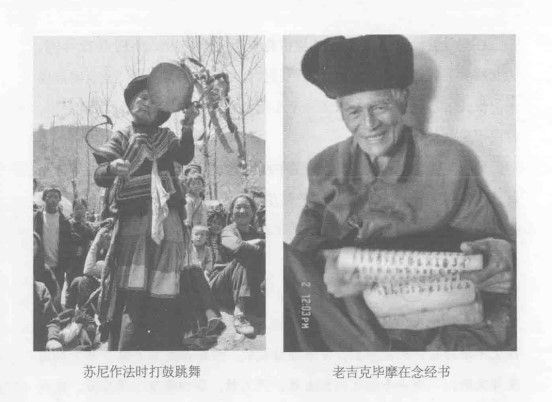Lost person in modernity, where are you going——Comment on "My Liangshan Brothers"
Before reading Liu Shaohua's book, I knew very little about the Yi people. The first time I heard about the Yi people in Liangshan (Nuosu) was through the CCTV mini-series "Hearing Liangshan". The story of a Yi youth who likes music and is wandering outside. The five Yi youths in the play walked out of the remote Daliang Mountains with a dream of music. In the big city, they experienced the squeeze of the entertainment company, the dark-box operation of the talent show, the temptation of drugs and the discrimination and exclusion of some Han people. After returning to Liangshan disheartened, he found that his hometown had been withered, and felt at a loss...

The director finally gave the protagonists a relatively happy ending. The sun rose as usual, and the Yi youth sang their hopes for the future on the hillside. But in reality in Liangshan, the suffering is far from over. And the most distressing thing is that this is a suffering that is not understood by most people. Open Zhihu and search for questions about the Yi people, and we will see that many people tell about the barbaric and ignorant side of the Yi people they have heard from others or witnessed when they were supporting education and poverty alleviation, and then berating the Yi people for how unsatisfactory they are. What a waste of resources invested by the state. Here, we seem to see a very heavy "burden of the Han people", how hopeless Liangshan sounds, like an abscess on the southwestern land, constantly flowing thick water to other areas.
However, Liu Shaohua is willing to come to this "incurable" place for more than 20 months to gain an in-depth understanding of the living conditions of the local people, especially the young people, and wrote this precious Liangshan Yi medical ethnography for us. My Liangshan Brothers".

When I first arrived in Liangshan, the author only communicated with more literate Yi village cadres and village teachers, and did not have a deep understanding of the situation of the Yi people. Until she happened to experience a supernatural event that many local people have experienced, and was willing to speak for the panicked villagers when the police came to "break the feudal superstition of the masses", the villagers began to completely trust her and were willing to open up to her. Heart, telling the life journey of several generations in Liangshan. Sometimes, trust or even friendship is established between people with cultural differences. It is often in such trivial matters that seemingly trivial acts of empathy are precisely what countless minority people yearn for. Yi villagers don't want to be labeled as "feudal superstition" because of witnessing supernatural events, just as Uyghurs don't want to be regarded as "dangerous people", and Tibetans don't want to be seen as a vehicle of some kind of carnal desire.
The contact between Liangshan and drugs, a product of modernity, began at the beginning of the twentieth century. At that time, the nobles of Liangshan obtained a large number of modern guns with the help of the huge profits from opium cultivation, which made them more capable of guarding the tribes in Liangshan, maintaining relative independence and not falling under the jurisdiction of the state power. At the same time, Liangshan began to connect with the wider world outside, receiving the input of the first wave of modernity. It can be said that during this period, drugs promoted the independence of the Yi people in Liangshan, and even strengthened the power of the Yi people. No one would have imagined that in a few decades, the Liangshan Yi people will also decline and sink because of drugs, and they will go astray in modernity.
Modernity usually refers to the nature or characteristics of modern society. In the definition of sociology, it includes processes such as industrialization, urbanization, secularization, democratization, etc. State-initiated, governance programs oriented toward the goals of the aforementioned processes.
For a long time, the Chinese have regarded modernity as sacred and the pursuit of the modernization of the nation and the country as an indisputable goal. In China's middle school history textbooks and books on modern Chinese history commonly found on the market, modern Chinese history is a history of constantly seeking a path of modernization to become prosperous and powerful after being bullied by the West. Neither the literati of the New Culture Movement nor the Nanjing government had opened up the correct path of modernization and were abandoned by history. Finally, the CCP introduced Soviet-style socialist modernization, which allowed China to liberate and become prosperous.
Many people, especially liberal intellectuals, will question this narrative, but the concept of propaganda that they have accepted since the reform and opening up is just another golden rule of modernization. There is a documentary "Rise of Great Powers" that has influenced several generations of young people. The main point of these cultural products is that China's current problem is that it is not modern enough, and there are still very backward and rotten things. We must pursue a more thorough modernization and a liberal capitalist modernization, especially the "fifth modernization" (Wei Jingsheng) "—Democratization.


Of course there is some truth to this, and it is worth thinking about, but are all China's problems not modern enough? Is there no problem with the modernization of liberal capitalism? It seems that not many people outside of sociology and anthropology scholars and students think about this question. Most of China's older generation of liberal intellectuals also see ethnic minorities as uncivilized savages, and they nod their approval when the CCP preaches how it liberates, rescues, and enlightens minorities. In the same way, environmentalism, postmodernism, evangelical red neck, anti-intellectualism, these anti-modern, reflective modern things, also make them lost. The infighting among pro-democracy activists after Trump took office can actually be seen as a kind of loss in modernity.
Let us refocus our attention on the Liangshan Yi people and examine the socialist modernization in which they (and all Chinese people are involved) are involved. After the CCP took control of the Liangshan area, the Yi people were forced to accept the socialist government. The previous production model, traditional kinship system, and social stratum (a quasi-clan power organization called Jiazhi) were smashed and replaced by collectives. development model. In this model, the party and government machines concentrate all power and resources, and implement the planned economy in each jurisdiction. Whether it is the nomadic production model of the Mongolians or the fishing and hunting production model of the Ewenki people, they are all “formatted” in a similar way. The method has become a planned economy under "collective ownership", and the Yi people are no exception. In such governance, the fairness of society as a whole (rather than poverty or egalitarianism) is placed above the free choice of individuals.
The CCP also used its usual methods to carry out the so-called class division in Liangshan, turning some people into "progressive elements" and party members and cadres, so that the same land reform and class struggle as in the Han region were carried out in Liangshan, during which many people were lynched and killed. Died, the Yi people were forced to establish allegiance to the party and the state.
The religious beliefs of the Yi people are regarded by the CCP as feudal superstition, and they have been suppressed by political campaigns again and again. Until now, the Yi people still call their religious activities "gan superstition". Even though they don't understand the meaning of these three characters, they still pronounce them in Chinese, because that's how the party members and cadres sent from above reprimanded them. Yes, they are used to it.
The agricultural crisis and famine caused by the Great Leap Forward and the people's communalization, and the bloody fighting during the Cultural Revolution also affected Liangshan:
One of my daughters hanged herself. She was too hungry. She ate rice bran and grass. Hungry and tired. - Grandma Qubi

After the reform and opening up, China has gradually established a market economy, and another wave of modernity under the tide of neoliberalism is coming. But like most post-socialist countries, China has not stepped out of Soviet-style socialism. Instead, it is a mixture of former socialist governance and market economy, where old malpractices are intertwined with new social problems. This is really confusing.
The coastal areas developed rapidly, as the song in praise of Deng Xiaoping sings:
Mythical rise of cities
miraculously gather all the golden mountains
But the Liangshan Yi people are still trapped in poverty, the old communes and production teams have been disbanded, and the construction of the coastal areas has not been extended to the remote Liangshan, only a small high-pollution factory has been established, where work Almost all of the Yi villagers have lung problems. The desperate Yi people, especially the young people, managed to leave Liangshan and come to Chengdu or the big cities further afield. What they pursue is not only a modern life, but also the masculinity of the Yi culture that is not afraid of taking risks. They are exploring in modernity. ,play.
However, under the influence of cultural conflicts and the atmosphere of the city's drunkenness, the youth of the Yi nationality are getting lost in modernity. Many people are addicted to drugs, AIDS is spread through shared injections, and the disease is brought into Liangshan. Of course, the people of Liangshan did not take it easy. Some responsible Yi elders and successfully detoxified Yi youths formed an anti-drug association linked by the residual clan relationship, which once achieved good results. But the party and government organs, worried about the resurgence of "backward and reactionary" clan organizations, were very afraid of the growth of the anti-drug association, and then stopped encouraging and financial support for the anti-drug association, and turned to the top-down campaign to eradicate drugs. . The latter did not achieve the same results as the Anti-Drug Association, and Liangshan's anti-drug business stagnated.
Regarding the prevention and treatment of AIDS, the authorities also did bad things with good intentions because they did not take into account the specific local conditions. The Yi people do not discriminate against AIDS patients. In their beliefs, there is no difference between people who fall ill and die due to various reasons. However, the AIDS prevention propaganda by the authorities for the purpose of "education" has portrayed the Yi people who have AIDS as a kind of special needs. Treating others, the Yi people have become just as discriminatory against AIDS patients as everyone else.
"My original intention has always been that the lives of Liangshan and my Nuosu brothers can be widely known." Liu Shaohua told The Paper. She maintained long-term contact with the subjects of the investigation back then, and often called them. If the other party didn't answer the phone, she could not help but be cranky and anxious. To her, they are her Liang Liangshan brothers, how much she wants the outside world to pay attention to Liangshan's problems and know their pain.
"This is a kind of stigma! Saying that Liangshan people are lazy, brave, ungrateful, and ingenious is a stigma against the Yi people; and the most absurd and outrageous of these stigmas is to say They refuse to modernize!" Liu Shaohua said, "These kinds of stigma, in the end, continue to blame the victims, which are easy, cheap, and useless."
The book "My Brothers in Liangshan" should be widely circulated to promote the authorities and the public to reflect on the problems arising from China's modernization, and make us realize that local managers are so arrogant, they lack relevant cultural knowledge but use public power hastily Intervening in the restoration process within the Yi nationality in Liangshan, if the legacy of the pre-modern product of the family clan is used, it will better promote the restoration and development of Liangshan society, and the Han people should not force the minority to accept the top-down "enlightenment" cause . After all, no matter what nation we are, we are all lost in modernity. We should reflect on modernity and encourage the exploration of development paths that are more suitable for each of us.
However, this book has been out of print for many years. The author also learned of this book only after being instructed by others. I read the electronic version on the Internet, and I have to say that it is a pity.
What has modernity brought to ethnic minorities and to this society? Is everything for granted? Closing this book, I have been thinking about these questions, which are the key to solving the urgent crisis of ethnic relations today.
I would like to thank Liu Shaohua, an anthropologist who truly combines knowledge and action. She made us understand that when we study any social science, we should turn our research into a kind of humanistic concern, so that those who are in misery and predicament can have an early life. Get rescued.
PS: This is the first book review I published on a social platform. My knowledge level is limited, and my writing skills cannot support my ambition to express more content. Please forgive me. If there is something worth discussing, please enlighten me.
Written in the first week of freshman year
Like my work? Don't forget to support and clap, let me know that you are with me on the road of creation. Keep this enthusiasm together!

- Author
- More